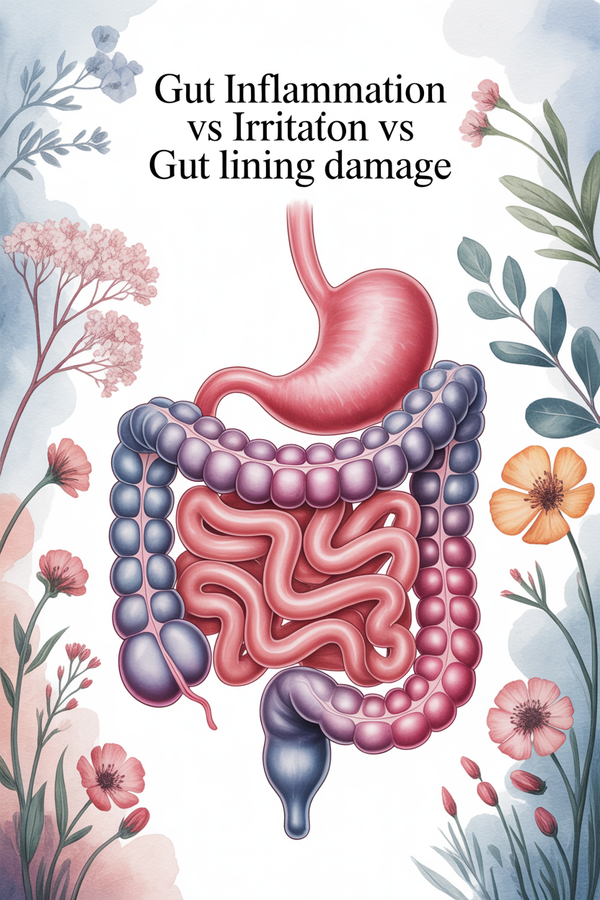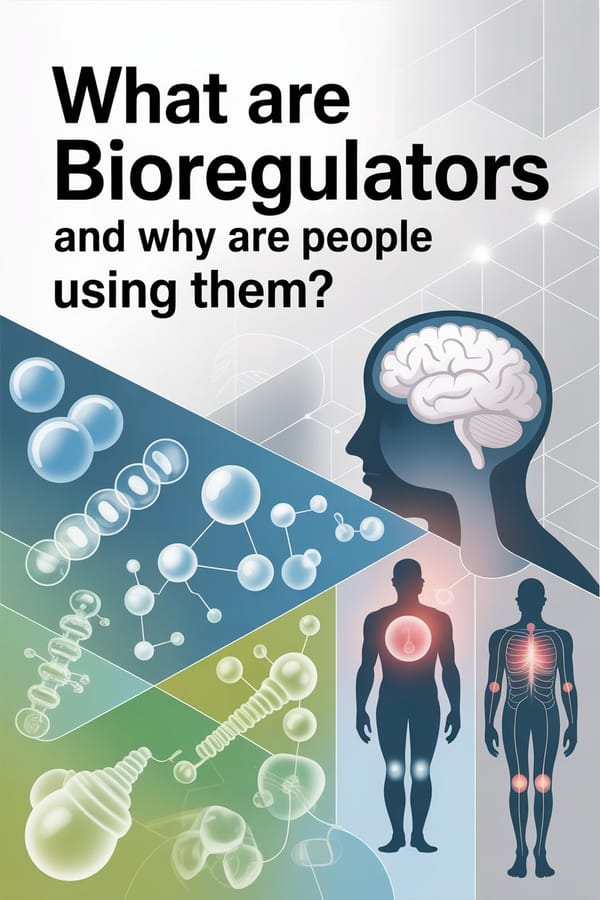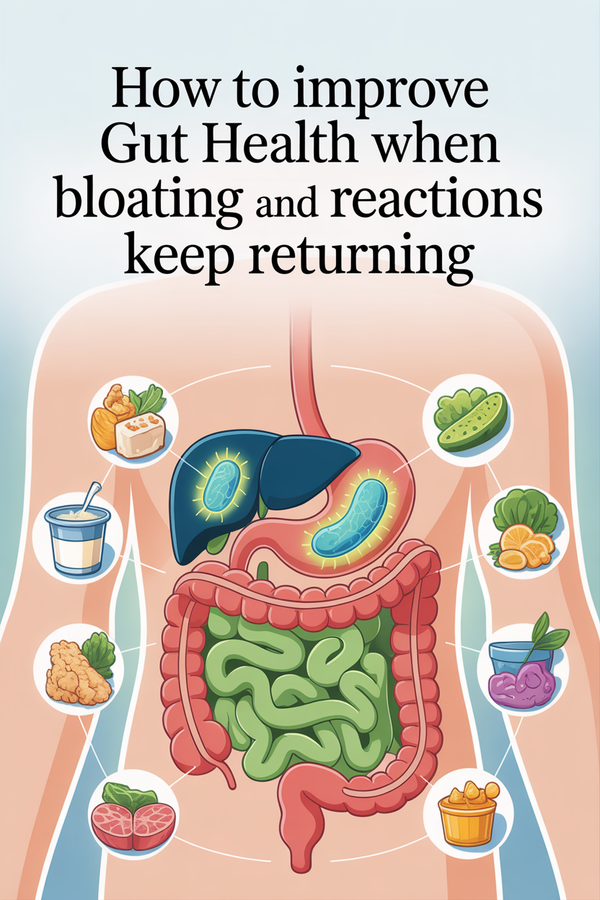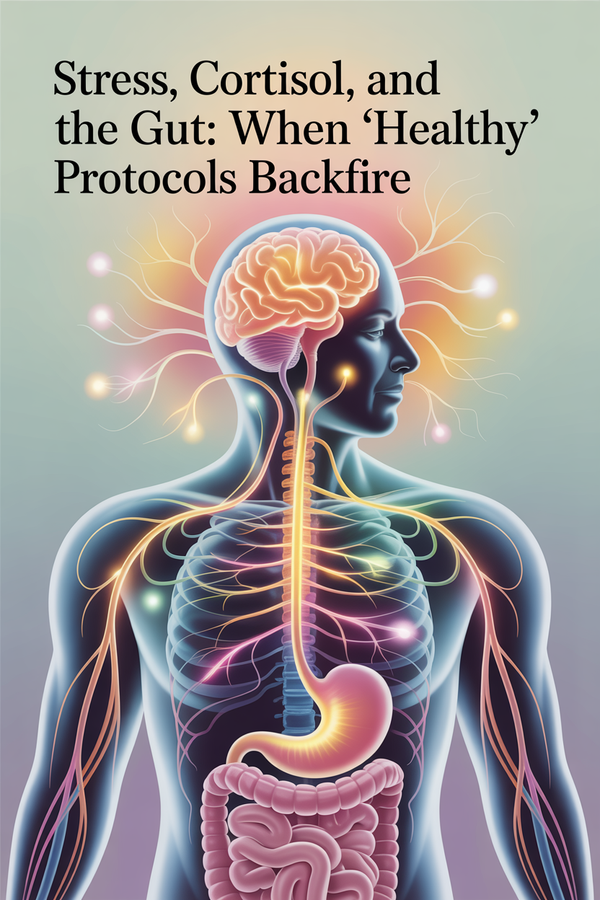Always Exhausted? It Might Be Mitochondrial Dysfunction and Not Just Stress or Hormones
Chronic fatigue, brain fog, and hormone chaos might all trace back to one thing mitochondrial dysfunction. These cellular powerhouses fuel your energy, and when they break down, every system struggles. Learn what’s draining your energy and how to get it back.
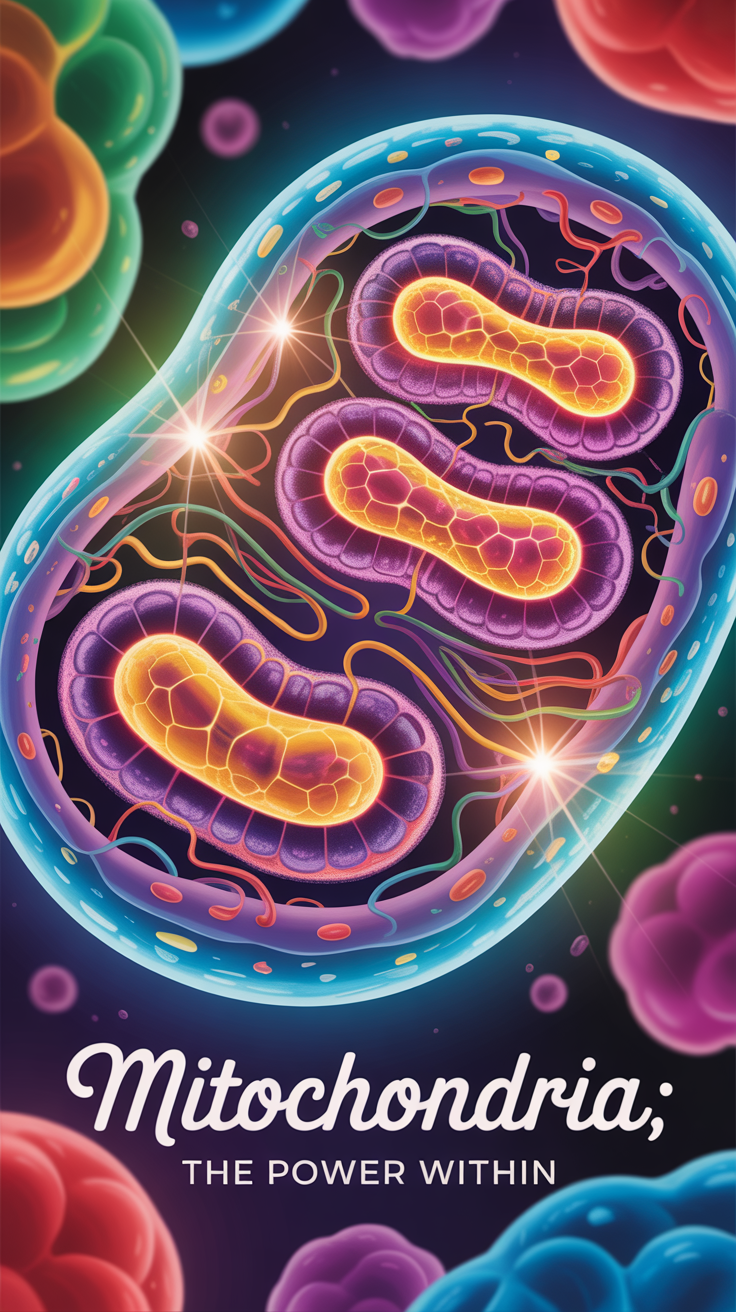
August 1, 2025
Mitochondria: What They Are and Why You’re Probably Exhausted
In June, we tackled gut health because let’s face it, that’s ground zero for pretty much everything.
But this month? We’re turning the spotlight on your mitochondria.
Why? Because if your energy is tanked, your brain’s in a fog, your hormones are on strike, or your body just won't cooperate, you might have a massive problem happening at the cellular level.
Mitochondria are the powerhouses inside nearly every cell in your body. And when they’re not working properly due to stress, toxins, or straight-up nutrient depletion, you don’t just feel tired. You feel broken.
This isn’t just an energy issue. It’s an everything issue. Because when your mitochondria can’t produce enough fuel, every system pays the price.
So let’s break down what they are, why they matter more than you’ve been told, and how to finally get your energy—and your life—back.
Let’s Back Up. What Are Mitochondria?
If you spaced out in high school biology, here’s your quick crash course. Mitochondria are tiny organelles that live inside nearly every cell in your body. Their job? Making energy in the form of ATP, short for adenosine triphosphate.
ATP is your body’s version of currency. You can’t blink, breathe, think, detox, digest, or regulate hormones without it. The more energy a cell needs, the more mitochondria it has. That means places like your brain, heart, muscles, and liver are loaded with these little engines.
So when your mitochondria are struggling, you’ll feel it everywhere.
Why You’re So Dang Tired
If your cells can’t make enough energy, your body goes into conservation mode. You might feel:
- Exhausted no matter how much you sleep
- Too tired to exercise (and wiped out when you do)
- Mentally sluggish or emotionally flat
- Easily overwhelmed by stress or noise
- Like your body is just... slower
This is mitochondrial dysfunction. And it’s a lot more common than people think.
What’s Killing Your Mitochondria?
Honestly? Modern life. We are swimming in mitochondrial stressors. Here are some of the biggest:
1. Toxins
Heavy metals, mold exposure, pesticides, seed oils, artificial fragrances, plasticizers, and flame retardants all damage mitochondria. These toxins either gum up the mitochondrial engine or block the nutrients needed to run it.
2. Nutrient Deficiencies
Mitochondria need raw materials to make energy. B vitamins, magnesium, CoQ10, carnitine, and minerals like copper and zinc are critical. Without them, energy production grinds to a halt.
3. Infections and Immune Stress
Viruses, parasites, Lyme, and chronic low-grade infections drain your body’s energy stores and create inflammation, which injures mitochondria over time.
4. Chronic Stress and Poor Sleep
High cortisol and disrupted circadian rhythms interfere with mitochondrial repair. If you’re staying up late, sleeping poorly, and wired on stress, your mitochondria are waving a white flag.
5. Mitochondrial DNA Damage
Your mitochondria actually have their own DNA. It’s more fragile than the DNA in your cells and can be damaged by oxidative stress, toxins, and aging. This damage slows everything down.
Symptoms of Mitochondrial Dysfunction (Beyond Just Fatigue)
You don’t need to be flat on the couch to have mitochondrial issues. Many symptoms fly under the radar or get blamed on other things. Here are a few:
- Brain fog and poor memory
- Hormone imbalances (thyroid, adrenals, sex hormones)
- Blood sugar swings or insulin resistance
- Muscle weakness or pain
- Chronic inflammation or joint pain
- Sensitivity to cold or heat
- Poor recovery from exercise
- Anxiety or depression
- Light sensitivity or headaches
- Bizarre reactions to supplements or detox protocols
Basically, if your body feels like it's short-circuiting in multiple ways, your mitochondria could be behind it.
How to Feed Your Mitochondria (So You Can Function Like a Human Again)
Here’s where the magic starts. You can rebuild mitochondrial health. It takes time, consistency, and the right inputs. Here are some top priorities:
1. Give Them the Nutrients They Need
Focus on B vitamins, magnesium, CoQ10, acetyl-L-carnitine, ribose, and PQQ. Eat more organ meats, wild seafood, grass-fed beef, and leafy greens. Bonus points for mitochondrial superfoods like beets, blueberries, and olive oil.
2. Let There Be Light
Sunlight (especially in the morning) signals your body to wake up and energize. Red light therapy can also help heal mitochondrial damage.
3. Breathe Like You Mean It
Oxygen is literal fuel for mitochondria. Deep breathing, breathwork, nasal breathing during sleep, and even altitude training can increase mitochondrial efficiency.
4. Move Your Body (But Not Too Much)
Mitochondria multiply in response to movement. Walking, strength training, and zone 2 cardio help build more of them. But if you’re running on empty, don’t overdo it. Start slow.
5. Prioritize Sleep Like Your Life Depends On It
Because it kind of does. Your body repairs mitochondria at night. No blue lights before bed. No scrolling. No revenge bedtime procrastination. Just go to sleep.
6. Ditch the Mitochondrial Killers
Ditch seed oils, processed sugar, artificial scents, aluminum deodorants, and your toxic cleaning products. If your body has to detox every time you breathe or eat, your mitochondria will always be playing defense.
7. Embrace Hormesis (Tiny, Productive Stress)
Short bursts of discomfort can stimulate mitochondrial growth. Think cold showers, sauna sessions, fasting, or HIIT. Just don’t do them all at once if your body’s still recovering.
In Case You Skimmed
- Mitochondria are the energy factories in almost every cell of your body.
- When they’re dysfunctional, you’ll feel it in every system—from your brain to your hormones to your gut.
- Toxins, stress, poor sleep, and missing nutrients are the biggest threats.
- You can rebuild mitochondrial health with nutrient-dense food, sunshine, breathwork, gentle movement, and detox support.
Ready to Boost Your Energy Starting Today?
Grab my free 3-Day Drainage and Energy Reset to support your mitochondria, open detox pathways, and feel better fast—without complicated protocols or expensive supplements.
👉 Click here to get the free download
We’re not waiting for permission,
Jamie Shahan MSN, CRNA, RN
Empowering Holistic Health
🌐 Connect with me on Social Media:
⚠️ Disclaimer
The information on this website is for educational purposes only and is not intended to diagnose, treat, cure, or prevent any disease. The content reflects the personal research, experiences, and opinions of Jamie Shahan and should not be considered medical advice. Always consult with your healthcare provider before making any decisions about your health, especially if you are pregnant, nursing, have a medical condition, or are taking medications.
Some links on this site may be affiliate links, which means I may earn a small commission if you choose to make a purchase at no additional cost to you. I only recommend products I use myself or would confidently recommend to someone I love

